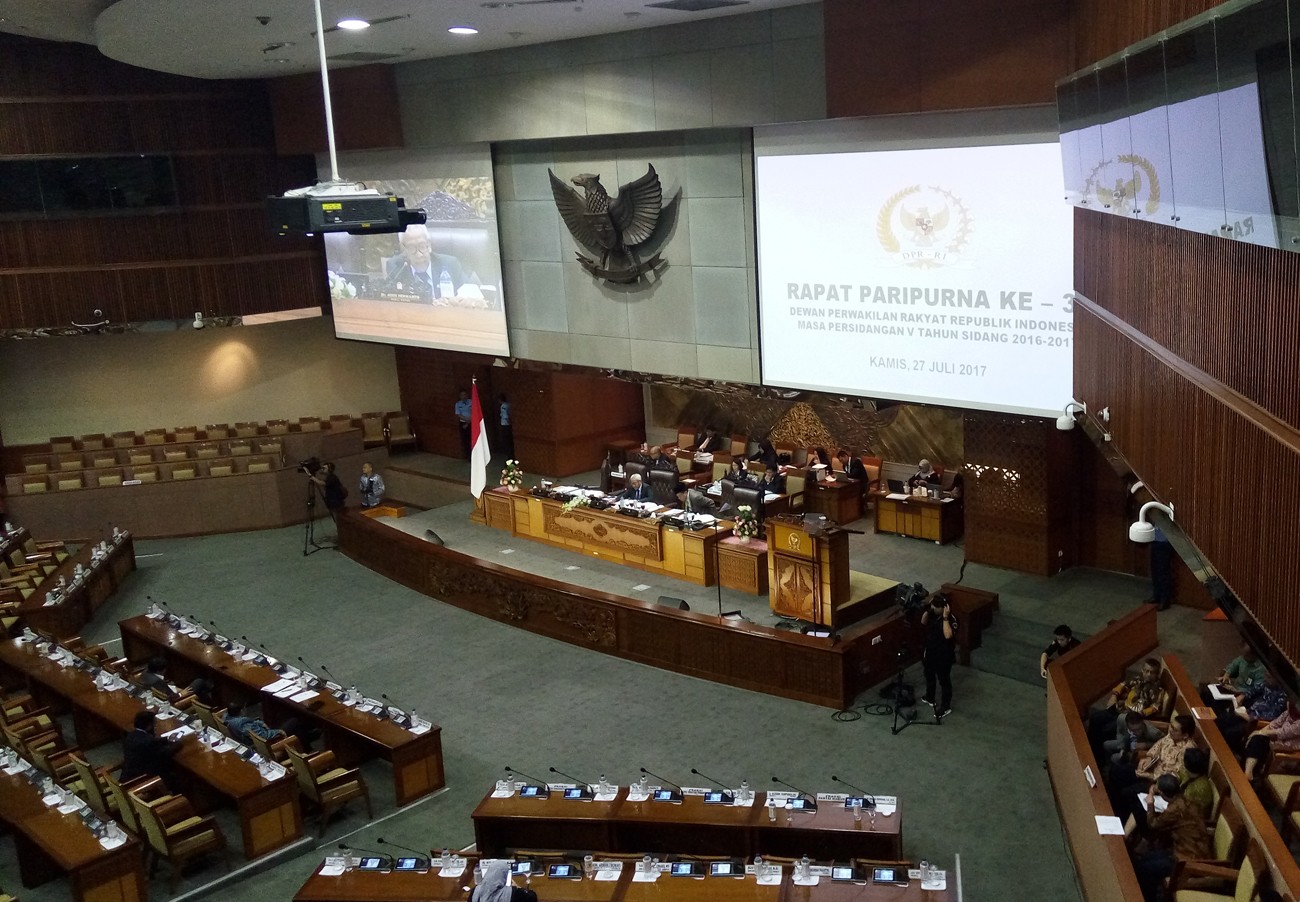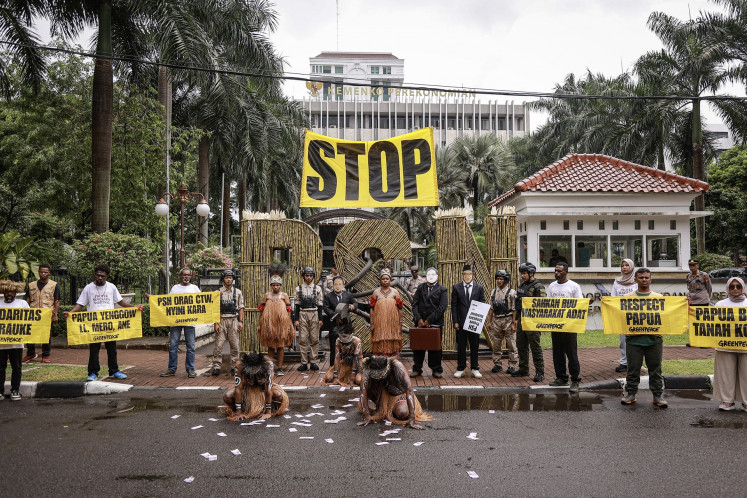Popular Reads
Top Results
Can't find what you're looking for?
View all search resultsPopular Reads
Top Results
Can't find what you're looking for?
View all search resultsNew election bill, new hope for democracy
The reality is, the new law will provide for a better working legislature and broader support for the president.
Change text size
Gift Premium Articles
to Anyone
T
he legislature has recently passed the new general election bill despite dissenting opinion from the opposition parties. The new bill is a watershed moment for democracy in Indonesia – it guarantees political stability and upholds democratic legitimacy, while keeping election costs down.
The bill comprises significant changes for the 2019 simultaneous elections as it increases presidential candidate and parliamentary thresholds, based on the 2014 election results.
The primary similarity with the 2014 elections is that the 2019 elections will use an open proportional system where voters are able to directly choose their desired person and parties they belong to.
Whilst our current system has its benefits, there are many weaknesses which the new bill address and will solve, such as setting up a threshold for presidential candidates that potentially reduces the costs of the election process and also increases the threshold to hold seats in the legislature.
One of the enduring problems with our current process is that too many candidates are running for president given the low threshold for parties able to field candidates.
This leads to an overabundance of presidential candidates from political parties, many with no real prospect. Presently over 70 parties are registered with the Justice and Human Rights Ministry.
To solve this problem, the new law requires a political party or coalition of political parties wishing to nominate a president and vice-president to have at least 112 of 560 seats in the House or 25 percent of the legitimate national votes in the previous election.
In short, it should ensure that the election is a contest between the candidates with a real chance of victory, rather than a chorus call for minor candidates that only serve to confuse the electorate and make the process unnecessarily complicated.
As no party fulfils this requirement, it is arguably a fair option. In fact, the Indonesian Democratic Party of Struggle (PDI-Perjuangan) as the party with the highest lawmakers accounted only for 18.95 percent of national votes, followed by Golkar with 14.75 percent and Gerindra with 11.81 percent.
Another weakness of the current system is the low threshold to be represented in the House. This leads to a plethora of small parties, and large parties effectively need to buy the support of micro parties to get laws passed.
Under the new bill, the threshold is increased from 3.5 percent to 4 percent of the total votes. This should reduce the number of parties in the House and make the system more manageable.
In the 2014 elections, only 10 parties passed the 3.5 percent threshold.
Such high thresholds are not unusual; many established democracies such as Germany and New Zealand set 5 percent thresholds. It shows that thresholds can work and lead to a more efficient and stronger parliament.
In previous elections, representation in the House were from 21 political parties in 1999; 16 political parties in 2004; 9 parties in 2009 and 10 parties in 2014. When a majority is hard to form, unstable coalitions can have problems implementing new laws and new coalitions might be needed for different new laws.
Finally, reducing the number of presidential candidates will do a lot to save time and money since a run-off is less likely to occur. Also, it will make the contest more manageable.
Usually, only a few candidates have a real chance and the 20 percent support guarantees a political back-up.
The large support for the president would also strengthen his position. Both House and President – the main organs for checks and balances in the democratic process – therefore are more powerful, which enhances the process itself.
Remember the 2004 elections, where there were five presidential and vice-presidential groupings? Due to a large number of candidates, no single candidate was able to reach the 50 percent plus one cut off requirement. This necessitated an expensive run-off election between the top two parties.
The reality is, the new law will provide for a better working legislature and broader support for the president.
Yes, some minor parties will grumble and feel they are being marginalized. Since their interests are uncovered, they are forced to grab the hand of other parties and work with each other.
Take the final national consensus from the Democrat Party where they have decided to field candidates for president and vice-president. This threshold provision would not allow them to fulfil their own words. However, it is a small cost to pay for a better system.
The key point here is that everyone has the chance to be involved in politics. Whether or not they are heading to Senayan, we should be proud that every vote is counted and that everyone has the same opportunity to be represented.
Certainly, by having fewer parties, political parties would be more competitive and therefore the elected politicians would be more likely to represent the will of the public majority.
The new bill would make the House and the presidency more effective. It would make the system easier to understand, less costly to administer and ensure a more powerful democratic process that benefits the majority of Indonesians.
---------------
We are looking for information, opinions, and in-depth analysis from experts or scholars in a variety of fields. We choose articles based on facts or opinions about general news, as well as quality analysis and commentary about Indonesia or international events. Send your piece to community@jakpost.com.










